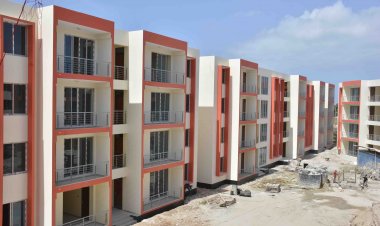Real Estate Investment Trusts (REITs) Performance in Kenya
The Local Authorities Pension Trust (LAP Trust) Imara I-REIT was approved for listing on the Nairobi Securities Exchange (NSE) Main Investment Market in November 2022,

In 2013, Kenya became the third African nation to adopt REITs as an investment vehicle, following in the footsteps of Ghana and Nigeria, who had initiated their REIT frameworks in 1994 and 2007 respectively.
Subsequent to that, South Africa became the fourth African country to launch REITs in 2013 after Kenya made the investment milestone. There are currently four authorized REITs in Kenya namely; the ILAM Fahari I-REIT, Acorn Student Accommodation I-REIT, Acorn Student Accommodation D-REIT, and recently, the Local Authorities Pension Trust (LAP Trust) Imara I-REIT. However, only one REIT is listed.
ILAM Fahari I-REIT was listed and began trading in the Nairobi Securities Exchange (NSE) in November 2015. The two Acorn REITs launched in February 2021 are not listed but investors can trade their shares over the counter through NSE’s Unquoted Securities Platform (USP). The Local Authorities Pension Trust (LAP Trust) Imara I-REIT was approved for listing on the Nairobi Securities Exchange (NSE) Main Investment Market in November 2022, a process that is currently underway.
However, it sought permission to restrain trade for the following three years due to difficulties in finding the minimum 7 investors in a depressed market and desired the REIT to create a substantial track record before allowing the units to trade freely.
A total of only three REITs in Kenya is low compared to countries like South Africa which has 33 listed REITs despite REITs regulations becoming operational in 2013 and after Kenya. Below we look at the REITs industry’s performance in Kenya through different metrics; notable activities in the market, and, the financial performance of the operational REITs. We will also look at the progress made regarding the status of policy proposals made by the Capital Market Authority in efforts to streamline the REIT’s industry in the country and increase its uptake by investors.
The progress of the Kenyan REIT market is underway, albeit slowly, with the potential to experience growth similar to those of other countries that have seen positive REIT market outcomes.
The REITs market in Kenya presents an opportunity to boost the Real Estate sector, allowing for an alternative way to finance real estate away from scarce and expensive debt financing, while providing returns for both developers and investors. With the ongoing drive by the government to provide decent housing to Kenyans, the REIT market could go a long way to boost the Affordable Housing Initiative by increasing the supply of housing units.
However, for REITs to take off, we need to consider taking prompt and decisive action to implement some of the above recommendations.
In order for REITs in Kenya to take off well, the government needs to consider taking prompt and decisive action on the following few recommendations made by experts in the industry:
1. Allow different legal entities for REIT formation
Just as it’s done in South Africa, different legal entities should be able to incorporate REITs. In Kenya, only a trust is allowed to form a REIT. Other entities such as companies, and partnerships, in addition to trusts, should also be permitted,
2. Introduce Hybrid REIT Vehicles
Though promising higher returns, there is a relatively high exposure to development risk for D-REIT investors brought about by the increasing costs of construction. Currently, investors have to subscribe to both of the separate REIT classes, forcing them to pay duplicate costs, due to the nature of exclusivity of the two. A hybrid REIT would provide investors with integrated returns, by combining the higher return from development while reducing risk exposure through the relatively stable income component of the I-REIT. In addition, an IPO with such a hybrid REIT vehicle would eliminate the duplicated costs of running two separate REITs, thereby improving subscriptions by investors,
3. Efficient approval structure
In order to streamline the approval process for Real Estate Investment Trusts (REITs), the approval structure should be combined into one agency, instead of the current two (CMA and KRA). Combining the approval structure into one approval structure would eliminate the need to go through two separate agencies for REITs approval, which would streamline the process by improving its efficiency, saving on costs, and increasing transparency and accountability,
4. Give time before requiring that a REIT must list in the public markets
REITs should be allowed to stay private for a while before listing. Companies are not comfortable listing from day one. For example, in the UK they are given 3 years before they are required to list.
If you have a real estate press release or any other information that you would like featured on African Real Estate Blog Post do reach out to us via email at [email protected]


































